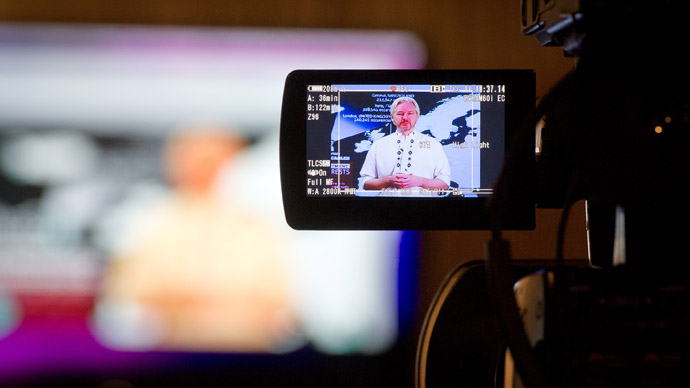‘WikiLeaks release to hurt ‘Mr. Death Squad’ Kissinger’
The WikiLeaks release of 1.7 million US intelligence documents from the 1970s may seriously hinder US foreign policy power-broker Henry Kissinger, operating behind the scenes in recent years, UK-based investigative reporter Tony Gosling told RT.
Most of the data, comprising records from the beginning of 1973
to the end of 1976, has been compiled by the site's founder, Julian
Assange, who has been holed up in the Ecuadorian embassy in London
since last June.
Many of those reports were written by or sent to Henry Kissinger,
who was US secretary of state and national security adviser during
the period.
Gosling says that, despite not being part of the US government
since 1977, Kissinger has been influencing the international
landscape through unofficial channels all these years.
RT:Is there any indication yet of who gave these documents
to WikiLeaks?
Tony Gosling: Well, those documents were, actually,
available in the archive. It’s just almost impossible for the
general public to search for them. It’s quite clear that Julian
Assange isn’t being idle in his incarceration, in his dungeon in
London. What he’s and his colleagues have done is turned it into a
really useful, searchable database, a massive one. Three hundred
and eighty gigabytes of data, 1.7 million records – this new PlusD
release from WikiLeaks. And it’s extremely useful. I mean I had a
brief look this morning right after the release and you can find
quite a lot of stuff in there, which is going into the detail of
the US foreign policy during the [Henry] Kissinger years.

We’re talking about 1969, for example, the bombing of Cambodia;
this is secret policies, which were going on from the White House
in the 1970s; the South American Operation Condor; death squads
running around in South America, killing thousands and disappearing
thousands of people; 1973, [Salvador] Allende’s Chile, where Henry
Kissinger ordered the assassination of the president of Chile
because he wasn’t going in the [desired] political direction and
installed General Pinochet; 1974, the Turkish invasion of Cyprus.
There are little bits of details on all of these, in which
Kissinger was involved. I mean Kissinger basically gave a green
light to Turkey to invade Cyprus. So once there was an official
foreign policy going on, which was quite, you know, nice from the
US, going alone with human rights – there was unofficial police
going on, with Henry Kissinger in the White House, with all those
kinds of human right abuses and war crimes going on.
RT:What kind of reaction can we expect from Washington,
and how badly could this harm the US interests?
TG: I hope it harms even more because one of the staggering
thing is Kissinger – even though he’s not actually officially in
any position in the US government anymore – he runs this little
company called the Kissinger Associates, he manages these
Bilderberg conferences every year where all the rich and powerful
from the West get together in secret and he’s been running a secret
organization, a privatization in many ways, a private arm of the US
foreign policy. For example, in 2003 he was an unofficial adviser
to Dick Cheney, who was the US vice-president, over the policy in
Iraq.
You could call him Mr. Death Squad. And this goes into details in
the 1970s of how he started. Obviously, he couldn’t carry on and
the US couldn’t carry on doing this kind of thing overtly in
public, with their senior officials getting up to all that stuff.
So what happened is that the whole thing has been privatized and
gone underground.
The statements, views and opinions expressed in this column are solely those of the author and do not necessarily represent those of RT.












